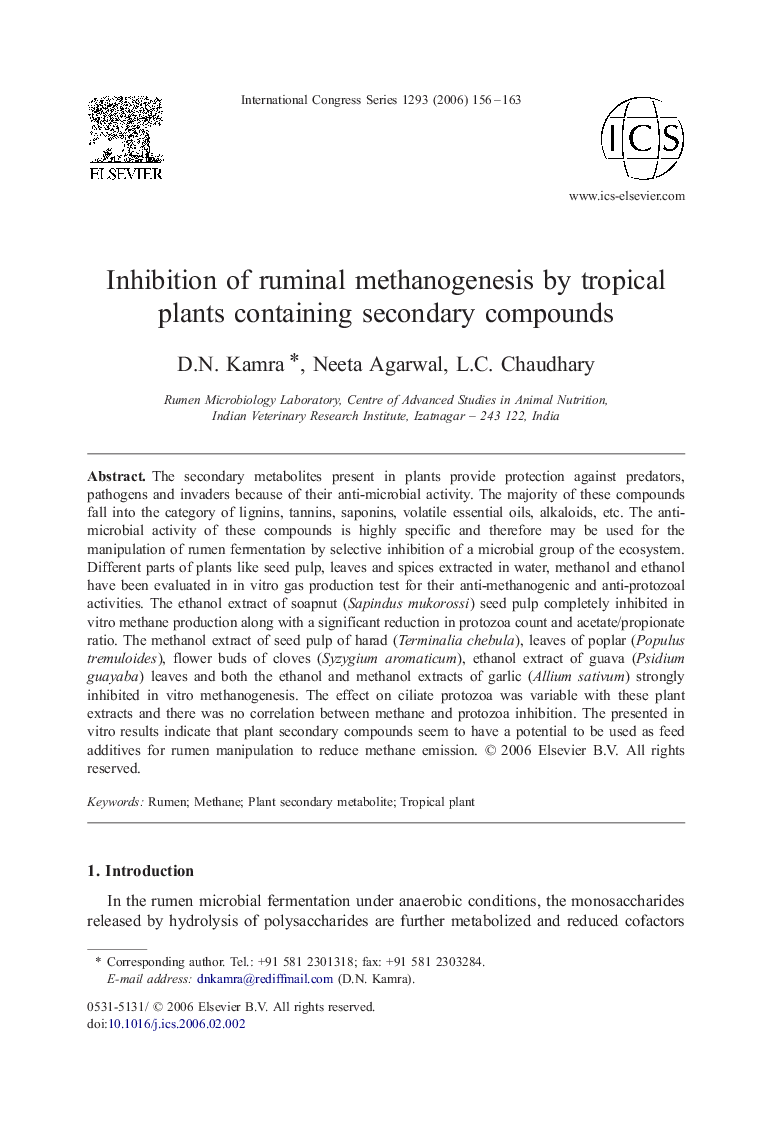| Article ID | Journal | Published Year | Pages | File Type |
|---|---|---|---|---|
| 2577075 | International Congress Series | 2006 | 8 Pages |
The secondary metabolites present in plants provide protection against predators, pathogens and invaders because of their anti-microbial activity. The majority of these compounds fall into the category of lignins, tannins, saponins, volatile essential oils, alkaloids, etc. The anti-microbial activity of these compounds is highly specific and therefore may be used for the manipulation of rumen fermentation by selective inhibition of a microbial group of the ecosystem. Different parts of plants like seed pulp, leaves and spices extracted in water, methanol and ethanol have been evaluated in in vitro gas production test for their anti-methanogenic and anti-protozoal activities. The ethanol extract of soapnut (Sapindus mukorossi) seed pulp completely inhibited in vitro methane production along with a significant reduction in protozoa count and acetate/propionate ratio. The methanol extract of seed pulp of harad (Terminalia chebula), leaves of poplar (Populus tremuloides), flower buds of cloves (Syzygium aromaticum), ethanol extract of guava (Psidium guayaba) leaves and both the ethanol and methanol extracts of garlic (Allium sativum) strongly inhibited in vitro methanogenesis. The effect on ciliate protozoa was variable with these plant extracts and there was no correlation between methane and protozoa inhibition. The presented in vitro results indicate that plant secondary compounds seem to have a potential to be used as feed additives for rumen manipulation to reduce methane emission.
